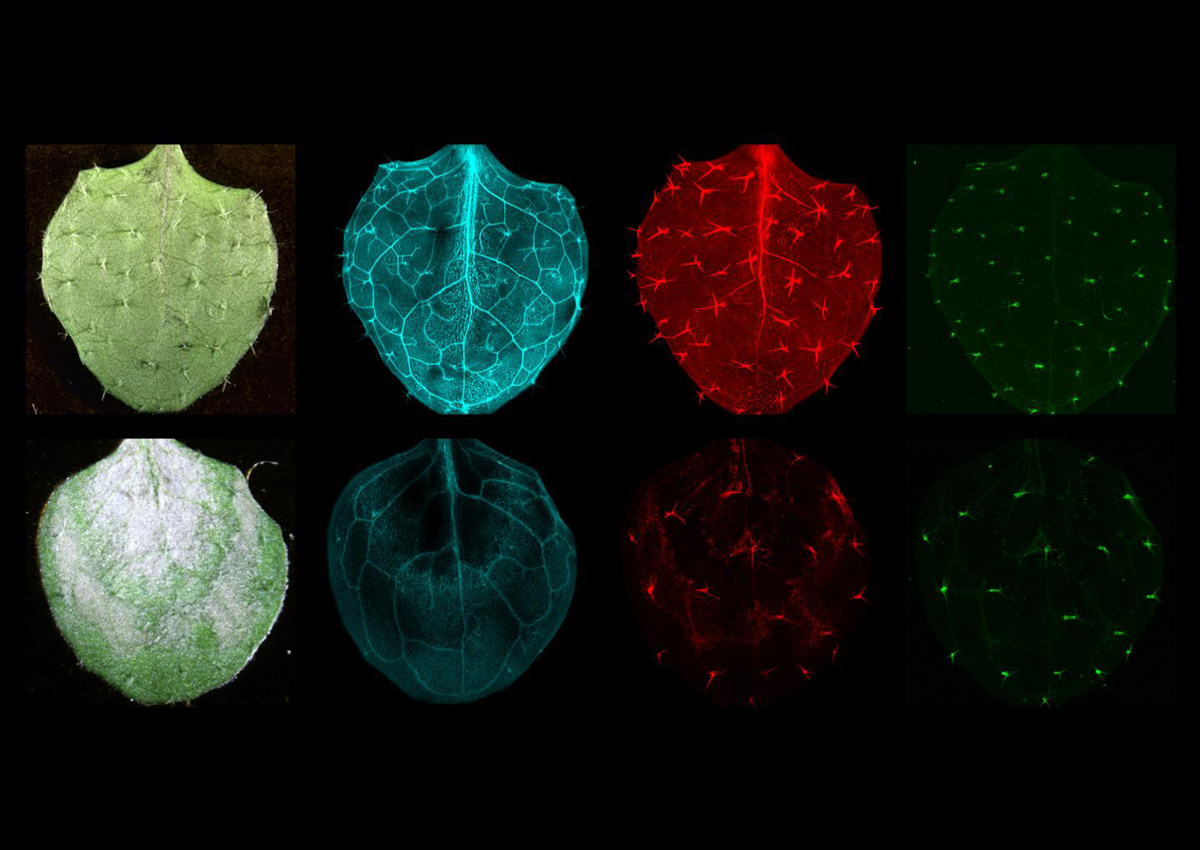
Study Identifies Proteins that Support Photosynthesis in Iron-Deficient Plants
October 27, 2021| |
A study reveals that researchers have identified how iron-deficient plants optimize photosynthesis to protect themselves from absorbing too much light.
Iron is an essential micronutrient important to photosynthesis, and the research conducted by researchers at Dartmouth College focused on the activity in chloroplasts, where 90 percent of the iron in plant leaves is stored and where photosynthesis takes place. The research team followed the cause of light-induced leaf bleaching observed in iron-deficient plants. They identified two regulatory proteins that protect plants from absorbing too much light during iron deficiency.
The images taken by the team show the way iron and other nutrients react to the absence of the regulatory proteins. The team hopes that understanding how plants adapt photosynthesis during iron deficiency may allow researchers to optimize plant growth in soils where iron is not naturally available.
For more details, read the article on the Dartmouth College website.
| |
You might also like:
- Research Team Discovers Gene for Iron Control in Plants
- Salk Scientists Uncover Gene for Iron Tolerance in Plants
- Research Groups Discover How Plants Cope with Iron Deficiency
Biotech Updates is a weekly newsletter of ISAAA, a not-for-profit organization. It is distributed for free to over 22,000 subscribers worldwide to inform them about the key developments in biosciences, especially in biotechnology. Your support will help us in our mission to feed the world with knowledge. You can help by donating as little as $10.
-
See more articles:
-
News from Around the World
- FAO Launches World Map of Salt-Affected Soils
- Global Seed Conference on Green Development of Seed Industries
- Experts Highlight Importance of Coordinated GM Seed Policies in African Region
- UC Riverside Scientists Figure Out How to Switch Plant Response to Light
- Study Identifies Proteins that Support Photosynthesis in Iron-Deficient Plants
- University of Georgia Reports Plant-based Jet Fuel could Reduce Emissions by 68%
- 4th Asian Short Course on Agri-biotech, Biosafety Regulation, and Communication (ASCA2021)
- Research Shows Plants Can Prepare for Insect Attacks
-
Research Highlights
- Scientists Use Mix Methods To Cut Breeding Time by One Generation
- Drought-Tolerant Soybean Performs Better At Major Plant Stages, Study
-
Plant
- Repair-seq Boosts Prospects for Gene Editing Technology
-
Health
- Strategies for Communicating with People Who Are Not Vaccinated to Build Confidence in COVID-19 Vaccines
-
Read the latest: - Biotech Updates (April 17, 2024)
- Gene Editing Supplement (April 10, 2024)
- Gene Drive Supplement (February 22, 2023)
-
Subscribe to BU: - Share
- Tweet

